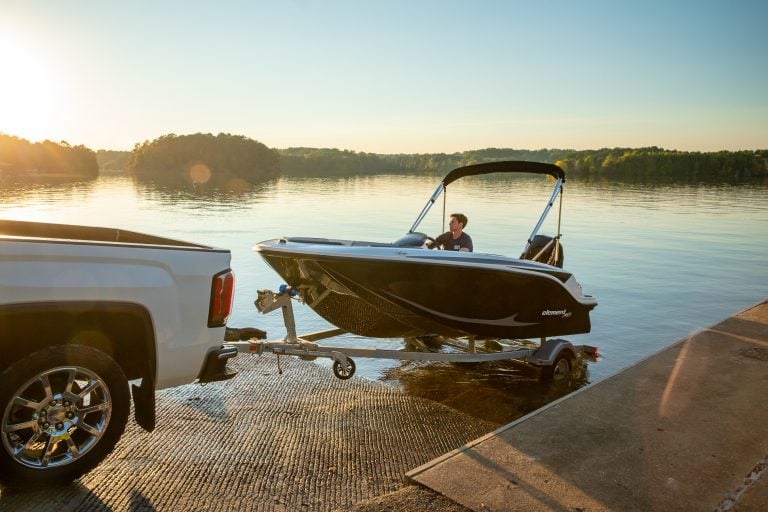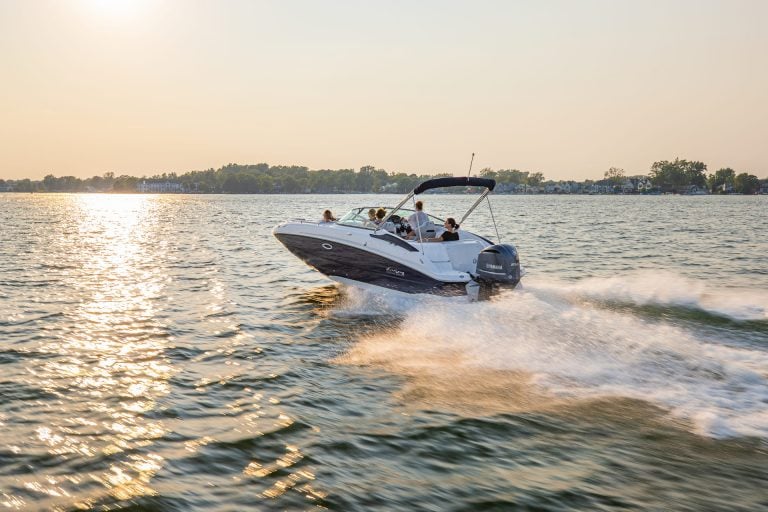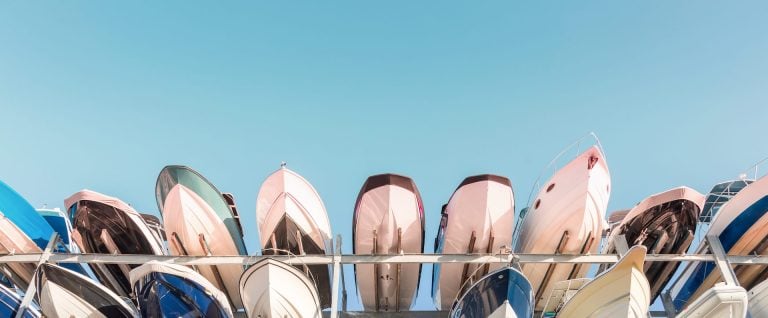
Boat Safety Isn't Something to Joke About.
When it comes to safety, preventing boating emergencies has to be one of the most critical elements of your time on the water. Remembering sunscreen, fueling up and making sure your motor is maintained are all important, but if you find yourself in an emergency and don’t take the appropriate action, there may be a serious injury or even fatality.
Here are five common boating emergencies and some tips on how to prevent them:
1. COLLISIONS
The thought of your boat colliding with another vessel or a floating object on the open water is distressing. It’s crucial for every boat operator to take their role seriously, and to take the precautions necessary to avoid a collision. Here are some tips:
● Follow the accepted rules of navigation
● Always maintain a safe speed, especially in the dark or when traffic is heavy
● Don’t consume alcohol while boating
● Don’t operate your vessel when fatigued
● Pay special attention to navigational aids
2. RUNNING AROUND
Getting stuck on the bottom is another issue that happens in our waterways. Most of the time, this happens while traveling at a low rate of speed, but if you are moving quickly, the potential for disaster is significant. Follow these boat safety tips to prevent running aground:
● Know your environment and the waterways you travel in
● Keep in mind the location of shallow submerged objects will change as water levels change
● Bring appropriate charts and learn to read them to determine exact position and water depth
3. FIRE ABOARD
Fire prevention is important in any environment, especially while out on the water. Many boaters accidentally mix fuel, fire and heat which are the three keys to starting a fire. Proper fueling technique and following standard boat safety rules will help prevent this from happening, but if you end up with a fire anyway, here’s what to do:
● Stop the boat immediately
● Instruct anyone who isn't wearing a PFD to put one on
● Move the boat so the fire is positioned downwind
● Shut off the fuel supply if the fire is close to an engine
● Remember not to use water for electrical, grease, oil or gasoline fires
● Use the fire extinguisher to battle the flames, aiming at the base and moving it in a sweeping motion
● Call for help via marine radio and follow any instructions given
4. CAPSIZING AND FALLING OVERBOARD
Sitting in spaces that aren’t designed for sitting isn’t unusual while boating, but it drastically increases the likelihood of someone falling overboard, or capsizing the boat with smaller vessels. Keeping everyone in the areas of the boat designed for passengers is key, but here are some other tips that will help keep the boat upright and everyone inside.
● Make everyone wear a life jacket just in case they end up in the water
● Don’t overload the boat with people or unnecessary supplies
● Don’t allow anyone to sit anywhere not designed for seating
● As the operator, secure an ignition safety switch lanyard to your wrist or clothing
● Avoid boating in rough weather or adverse conditions
● Reduce your speed appropriately when making turns
5. CARBON MONOXIDE POISONING
Most people are aware of carbon monoxide’s reputation as a silent killer, but not many associate the risk with boating. The truth is, carbon monoxide is produced anytime a fuel source is burned, including when operating your boat, in the form of engines, heaters, generators or cooking elements. Here are a few tips to keep CO safely away from you and your passengers:
● Don’t allow swimmers to enter any enclosed areas beneath the swim platform
● Keep fresh air circulating no matter what the weather is like
● Ventilate thoroughly if you detect exhaust fumes
● Be mindful of the location of engine and generator exhaust outlets
● Install and maintain carbon monoxide detectors on the boat
Boat safety is a multifaceted activity that covers a broad range of topics, but by taking it seriously and never underestimating the dangers, you can enjoy a safe time on the water every summer.



